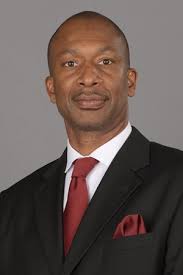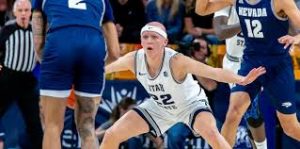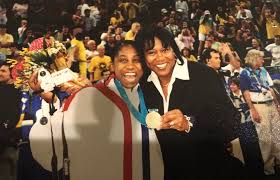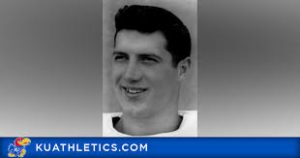The NBA Finals date back to 1947 (when they were known as the Basketball Association of America Finals) and the very 1st NCAA tourney was held in 1939. Olympic basketball competition is even older: it debuted as a demonstration event in 1904 and the men’s version became a medal sport in 1936, with the women finally getting their chance to go for the gold in 1976. The United States has dominated Olympic basketball competition from the start: the men have won 15 gold medals in the 18 tournaments they have participated in during the past 84 years, while the women have won 8 gold medals in the 10 tournaments in which they have competed during the past 44 years. Those of you who were looking forward to the 2020 Olympics opening ceremonies in Tokyo on July 24, 2020 will have to wait an extra 364 days, as the coronavirus caused a postponement until July 23, 2021. Due to the absence of college basketball since mid-March, HoopsHD’s Jon Teitel decided to fill the void by trying to interview as many prior Olympic players/coaches as possible so that you have something to read this summer while not watching the Summer Games. We continue our coverage by chatting with Susan Yow, Janie Brown (former Elon PE professor), and Kyle Wills (Elon Senior Associate Director of Athletics) about Susan becoming an All-American at 2 schools and winning a gold medal in 1988. Today marks the 32nd anniversary of team USA’s 87-81 win over Czechoslovakia in Olympic round-robin pool play.

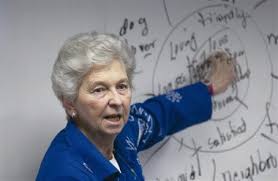

You were born/raised in North Carolina: what made you choose Elon? Susan Yow: My sister, Kay Yow, was the main reason. She had taken the job at Elon 2 years prior to me graduating from high school so it was assumed that Elon is where I would go to further my play: it was a natural decision. I had experienced playing for Kay when I was a sophomore in high school. We found ourselves that season without a coach. Kay was at UNCG working on her Masters’ degree after having coached/taught the previous 4 years at another high school in our conference. The “powers that be” asked her if she would coach our team that season and it turned out to be a rehearsal for my collegiate career. Janie Brown: She grew up in Gibsonville, which is only 4-5 miles away. Her family came to games here and her father would often come to my office to talk. Her sister Kay was already coaching here so I think that was the main factor. Kyle Wills: I assume because her sister Kay was the coach.
You were named team captain as a junior and were an All-American in the very 1st year of the award in 1975: what did it mean to you to receive such an outstanding honor? SY: It meant a lot at the time for two reasons. It was such a surprise because it was the first time an All-American team had ever existed on the collegiate level for women. It was not something I was striving to achieve, but when you have a passion for playing the game and are recognized at the highest level it is a nice feeling. JB: I am sure that it meant a great deal to her but she was never 1 to flaunt her honors. She is a very humble person and it was a real honor for our school: she remains the 1st Elon woman to become an All-American.
Despite standing 5’9” you still rank top-10 in Elon history with 8.5 career RPG: what was your secret for being such a great rebounder? SY: Being in the right place at the right time. My career-high of 27 rebounds happened when Kay had us in a 2-3 zone defense and I was on the back left side. The opposing team ran their offense to the right so when they shot and missed most of their misses came to the left side. Again: it was about being in the right place at the right time. JB: I call it “court sense” or a sense of space on the floor and where the ball/opponent was. She had the knack even though she did not jump very high. She was aggressive and knew how to get to the ball and where it was coming off the rim. It was certainly not due to her height, although she was a great athlete. KW: She was a student of the game and had natural instincts. Those types of players always seem to know where to be on the court at the right time.
After your older sister Kay left Elon to become head coach at NC State you decided to follow her there by transferring: how big a deal was it at the time for an All-American player to transfer after her junior year? SY: It was a very big deal after spending 3 years at Elon where I had developed many great friendships. During the initial years of collegiate sports for women, we were under the governing body of AIAW (Association of Intercollegiate Athletic for Women). It was not until 1982 that the NCAA accepted women’s athletics under their umbrella, but for that one year in 1982 both the AIAW & the NCAA each had a Women’s Basketball National Championship. By 1983 we were under one governing body: the NCAA. I say all of that because the AIAW did not have any rules regarding transfers…thank goodness. I give credit to both schools for working together for my personal interest. Kay was a very persuasive individual so I think she was instrumental in bringing it all together. I along with two other teammates made the transfer. I returned to Elon in the summer of 1976 and completed my degree so I could return to NC State and work as a graduate assistant coach under Kay. The other two graduated from NCSU. JB: It was a big deal for the men because they had strict transfer rules in the NAIA but for the women in the AIAW the philosophy was that athletics were more for the students than for the school. Some men in our athletic department were very unhappy about it but she had some other teammates also transfer to NC State to play for Kay. She had done a lot for Elon but we thought that it was best for her so we let her leave. Kay was a great coach/person so I understood the players’ allegiance to her. There was not a lot of recruiting back then so playing time was also important. KW: It would normally be difficult but because of the circumstances with Kay being her sister everyone understood.
You led the Wolfpack in almost every category (19.4 PPG/11.9 RPG/58.4 FG%/83.2 FT%) and were named an All-American for the 2nd straight year: how did you like playing for Kay, and do you think that doing so allowed you to play your best? SY: I believe my stats speak to that: I do not think that my college career could have worked out any better. Kay was a special sister, person, and coach. She had a knack for getting along with people. I had a passion for the game so she never had to motivate me to play hard. I wanted to be the best at everything I did on the court: of course I was not the best at everything but I was always striving to be the best. Our teams always had unity and we all got along which speaks to Kay. We respected Kay so much and wanted to please her: it was very harmonious. JB: No doubt. They related very well to 1 another but Kay taught her players to know the entire game (not just their individual roles), which fit Susan’s style. She certainly knew the game and was a strong athlete but she was a low-key person, as was Kay. Kay coached her to be the best that she could be but I do not know if it would work for everyone in all circumstances. KW: Normally I think it is hard to play for a family member because they expect/demand more from you. However, if I was Kay back then I would have loved having Susan on my team. She understood her, knew her ability, and allowed her to grow. The same went for Susan: she knew how Kay thought and what she expected from her as a player/leader on the team.
The following summer you returned to Elon to complete your degree in Physical Education, then went back to NC State to become an assistant to Kay for 2 years: how do you balance your allegiance between the 2 schools after spending so much quality time at both? SY: I spent 3 years at both schools so I have a strong affinity for both, but Kay’s 34-year tenure at NC State presented many more opportunities to associate with the athletic department at State vs. Elon. Debbie and I received our undergraduate degrees from Elon. Debbie presently serves on the Board of Trustees at Elon and I presently serve on the Hall of Fame Board. Both universities and the people at both are special to us. JB: She still attends many events/games at both schools: I went with her last year to a Louisville-NC State game. I am not sure how she manages it: her sister Debbie was athletic director at NC State but she balances her allegiance and contributes to both schools. She valued the fact that she came back here to finish her degree: I taught 2 of her classes and worked with her. NC State did not have a physical education degree and she knew that she wanted to coach. KW: I believe she truly enjoyed playing in the ACC…but I also think that she was an Elon person at heart.
In 1978 you began your head coaching career at East Tennessee State, then later became coach at Drake/Kansas State/UNC-Wilmington: how were you able to build a reputation as a rebuilder of so many different programs? SY: I tended to take jobs where the emphasis was to rebuild or change the culture. I think one of my main strengths as a coach was teaching the game so those two scenarios probably created that thought. JB: I know that she relates well to people so part of her success was her ability to recruit. She could relate to parents/students to help them succeed and was not afraid of a challenge.
You were an assistant to Kay for team USA at the 1988 Olympics: what did it mean to you to represent your country, and what did it mean to you to win a gold medal? SY: It was an honor that is difficult to put into words. To be selected by your sister as an assistant coach and represent your country was beyond anything that I could have ever imagined. I remember when she called me at Drake to ask if I would serve as one of her assistants: I was floored. It was a very emotional moment. Every four years when our USA Women’s Basketball Team takes the court in the Olympics the memories of 1988 grow richer. JB: I know that it meant a great deal to her. The Russian women’s team actually played at Elon in 1974 during a tour of the US. They came to play a team made up of American players from several universities and Kay got along well with the Russian official who traveled with the team. I have never seen their gold medals but I am sure they are kept in a special place. International basketball was a great experience but she would not bring it up herself.
Your sister Kay is in the Naismith Hall of Fame, your sister Debbie/cousin Virgil are in the North Carolina Sports Hall of Fame, and your brother Ronnie played football at Clemson: who is the best athlete in the family, and who is the best coach in the family? SY: I believe Kay would have said that I was the best athlete and I believe Debbie would agree, but my brother might have been the best athlete in the family. Of the 3 girls, I think I hold that credential. Best coach has to go to the Naismith Hall of Fame coach, but Debbie had an outstanding coaching career before she went into administration. As it turned out we each achieved high honors: one as an athlete, one as a coach, and one as an administrator. JB: That is a loaded question! I knew Ronnie but never saw him play. I would say that Susan was the best athlete because she came along at a time when women’s athletics was growing, whereas Kay never got to show her talent. Kay was the best coach, although Debbie was pretty successful before becoming an administrator. KW: She was an unbelievable athlete so I assume that she was the best. She took jump shots before most girls were doing that. Obviously Kay was an unbelievable coach, as her record indicates.
When people look back on your career, how do you want to be remembered the most? SY: I hope they saw me as a teacher of the game and someone who gave it her all, regardless of the outcome. Someone who cared for the student-athlete and wanted to see them achieve great things both on and off the court. My coaching career was not what I had hoped, but coaching is one of the greatest professions you could ever be in and I never regret choosing that as my profession. JB: As a great athlete but also as a great person of character. She could be competitive but it did not dominate her thoughts. She was a friendly/caring person and that is how I know her. KW: As 1 of the best women’s basketball players in Elon history.

